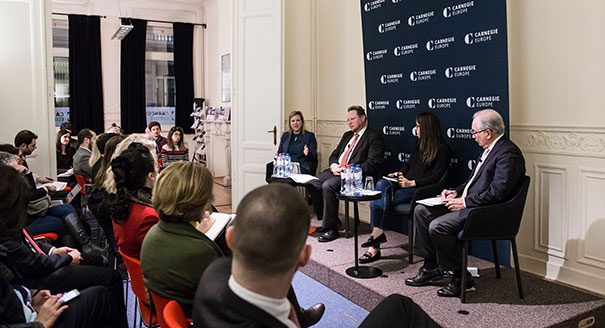Registration
You will receive an email confirming your registration.
Corruption in Tunisia has become endemic. Despite numerous legal measures and civil society initiatives working to fight it, corruption has become more pervasive today than before the Arab Spring. For Tunisia’s democratic transition to survive, the country must simultaneously address the kleptocracy of the previous regime and the emergence of everyday citizens engaging in and benefitting from corrupt practices—which range from participating in informal economies to access food on the one hand, to weapons smuggling, human trafficking, and supporting terrorism on the other. Can Tunisia’s government and civil society win this fight? What steps can the EU take to support the country’s anticorruption efforts?
Carnegie Europe hosted a public event with Sarah Yerkes to discuss the findings of her latest paper, coauthored by Carnegie Vice President for Studies Marwan Muasher, “Tunisia’s Corruption Contagion: A Transition at Risk”. Yerkes was joined by Ons Ben Abdelkarim and Michael Köhler. Carnegie’s Marc Pierini moderated.
Copies of the publication were available at the event and a light reception followed.
Ons Ben Abdelkarim
Ons Ben Abdelkarim is an international development consultant and active member of the Tunisian think tank Joussour. She is the former president of Al Bawsala, a Tunisian legislative monitoring NGO.
Michael Köhler
Michael Köhler is the director for neighborhood South at the European Commission Directorate General for Neighborhood and Enlargement Negotiations.
Sarah Yerkes
Sarah Yerkes is a fellow in the Carnegie Middle East Program.
Marc Pierini
Marc Pierini is a visiting scholar with Carnegie Europe.
